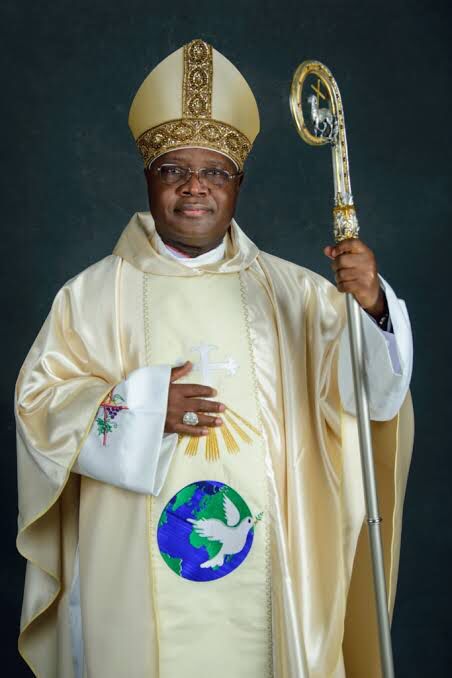Diplomatic relations between both nations are solid, with embassies and consulates that promote political, cultural and economic exchange.. A flow of cultural exchange is constantly encouraged, with cultural events, exchanges of artists, writers and musicians. Spain is one of the main foreign investors in Argentina, with prominent Spanish companies in various sectors. In addition, tourism plays an important rolewith Argentinians traveling to Spain to explore its history and heritage, while Spaniards visit Argentina for its geographical and cultural diversity.
The tension between Spain and Argentina has highlighted a relationship that has historically been marked by cordiality and cooperation. The ties between both countries have strengthened over the years, not only in the political, economic and cultural sphere, but also in the human aspect, with a significant population of Spaniards in Argentina and vice versa. With more than 482,000 Spaniards residing in Argentina and more than 328,000 Argentines in Spain, the relationship runs in both directions, creating a network of interconnection and collaboration that goes beyond diplomatic disputes..
In terms of trade and investment, Spain and Argentina have maintained a dynamic and fruitful relationship. Although trade has fluctuated over time, in recent years a positive balance has been maintained for Argentina, with Spain as its second European trading partner and the second largest external investor in the Latin American country.. This economic commitment has been reflected in multiple sectors, from the iautomotive industry until the agriculturethe energy and the construction. Through bilateral agreements such as Investment Promotion and Reciprocal Protection Agreement (APPRI)both countries have sought to foster stability and trust to continue promoting the flow of investments and mutual economic growth.
Argentina and Spain maintain a very close relationship due to various historical, cultural, economic and social ties. Firstly, and beyond the obvious, it should be said that Spanish colonization in the 16th century left a significant mark on Argentine culture, language and traditions. Spanish is the official language in both countries, facilitating communication and strengthening cultural ties. In turn, Argentina received a large number of Spanish immigrants during the 19th and 20th centuries, thus contributing to the country’s cultural diversity.
Of course things changed after the arrival of Javier Milei to power in Argentina. However, in recent years, ties between Argentina and Spain had deepened significantly. From Spain’s commitment in 2021 to support Argentina in its negotiations with the IMF to the agreement to intensify cooperation in the fight against international crime in 2022, both nations have demonstrated a mutual interest in promoting economic stability and global security. . The official visit of the former Argentine president to Spain in May 2022 underlined the importance of energy cooperation, especially in key areas such as natural gas and lithium, highlighting the potential for a strategic energy partnership between Europe and America from the south.
At the time, the president of the Autonomous Community of Madrid, Isabel Díaz Ayuso, had negatively compared Sanchismo with Kirchnerism, which links her, in turn, to the imprint of Milei, who, at the same time, maintains fluid ties with Vox and its leader, Santiago Abascal. In this sense, The Argentine president has already shown that he prefers to maintain ties with his ideological followers rather than with his institutional counterparts.. And he finds a like-minded person in Vox, beyond obvious ideological differences.
If Vox is part of the so-called “neopatriot right”, it is not possible to affirm the same about Milei and the libertarianswhich do not have a concrete anchor in Argentine ultranationalist political traditions and even reject the very concept of Homeland. However, the clearly anachronistic dichotomy between “communism” and “freedom” permeates the entire libertarian discourse..
In line with Donald Trump’s anti-globalist speech before the United Nations General Assembly in 2019 that the future does not belong to globalists but to patriots and that he will not hand over US sovereignty to global bureaucrats that no one elects and who are not accountable, the speech given by Abascal during the presentation of a motion of censure that was unsuccessful in the Congress of Deputies of Spain in October 2020 is relevant. In programmatic terms, The Vox spokesperson expressed the growing presence of patriotic forces and movements in Europe and other parts of the Western world, which oppose inaction in the face of degenerated oligarchies that transform entire nations into unfavorable multiculturalist environments..
Over there, Abascal assured that his party advocates restoring the role of the nation-state, especially in the case of Spainas guarantor of the freedom and prosperity of its citizens, for preserving freedom and interests that are often threatened by the pressures of hegemonic powers and powerful globalist lobbies, making specific mention of figures such as George Soros, whom it describes as a financial speculator and anti-national conspirator.
In an absolutely different direction, in his first speech as president of Argentina, before the Davos Forum, Milei said the complete opposite, ensuring that the State is never the solution, but rather a problem.. In Milei there is no criticism of globalism, but rather, of the State that puts a brake on the market, as was evident in that speech. In the mileist discourse, the Nazis, the fascists, the communists, the social democrats, the Christian democrats, among other sectors of political life, “are the same”, since they all point towards a supposed collectivism and towards state dirigisme..
The economic divergences within Vox show the heterogeneity of positions within the party. On the other hand, the figure of Milei emerges as a notable contrast, representing a libertarian approach that criticizes state interventionism without necessarily associating itself with the neo-patriotic right. The dichotomy between communism and freedom permeates libertarian discourse, while Vox seeks to restore the role of the nation-state. This comparison reveals the different visions about the role of the State and individual freedom in both political contexts. As a last resort, The analysis highlights the need to understand the complexity of contemporary political movements, transcending superficial labels and exploring the various facets that make up the political reality of Spain and Argentina..
Beyond the political situation, and despite ideological divergences, the interconnection and collaboration between Spain and Argentina continue to be fundamental. This relationship, supported by a network of human and economic relations, endures beyond diplomatic disputes and political changes, highlighting the importance of a lasting and fruitful partnership between both nations.

